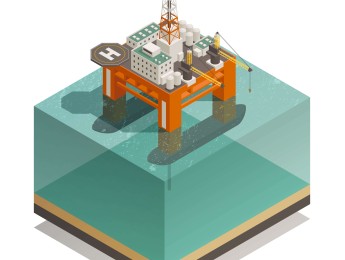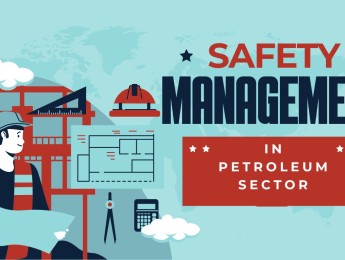This course provides a comprehensive introduction to offshore structural engineering, focusing on load analysis, structural design, and safety considerations within marine environments. Participants will gain a foundational understanding of the principles that underpin the design and maintenance of offshore structures, including platforms, subsea installations, and marine infrastructure. The course emphasises practical applications, enabling participants to assess structural integrity, perform load calculations, and incorporate safety standards into engineering designs.
Upon completing this course, participants will be able to:
- Understand the fundamentals of offshore structural engineering and design principles.
- Perform load analyses considering wave, wind, and operational forces.
- Evaluate the structural integrity of offshore installations.
- Apply safety standards and regulatory requirements to engineering designs.
- Incorporate sustainability and risk management practices into offshore projects.
This course is ideal for:
- Structural and civil engineers seeking to transition into offshore engineering.
- Marine and offshore project managers involved in infrastructure development.
- Design and analysis professionals working in the energy or maritime sectors.
- Safety officers and compliance managers in the offshore industry.
- Engineers looking to enhance their knowledge of structural design in marine environments.
This course adopts a balanced approach, combining theoretical instruction with practical application to maximise learning outcomes. Participants will engage in lectures that cover core concepts of structural mechanics and marine load analysis, providing a strong foundation in the subject. Real-world examples of offshore structural design and failures will be explored through case studies, offering valuable insights into practical challenges and solutions. Hands-on workshops will focus on critical tasks such as load distribution, structural calculations, and material selection, ensuring participants can apply their knowledge effectively. Regular assessments will be conducted throughout the course to reinforce learning and ensure mastery of essential concepts.
Day 5 of each course is reserved for a Q&A session, which may occur off-site. For 10-day courses, this also applies to day 10
Section 1: Fundamentals of Offshore Structural Engineering
- Introduction to offshore structures: Overview of key types of offshore installations, including fixed platforms, floating structures, and subsea systems.
- Marine environment factors: Explore environmental forces such as wave loads, wind loads, and currents, and their impact on offshore structures.
- Structural mechanics basics: Review foundational principles of stress, strain, and material behaviour in marine conditions.
Section 2: Load Analysis in Offshore Structures
- Wave and hydrodynamic forces: Understand the impact of wave-induced forces on structural stability and integrity.
- Wind and operational loads: Learn to calculate wind pressures and equipment-induced forces on offshore structures.
- Load combination methods: Explore techniques for combining different load scenarios for robust structural design.
Section 3: Structural Design Principles and Material Selection
- Structural design methodologies: Study approaches for designing safe and efficient offshore structures, including finite element analysis (FEA).
- Material selection: Discuss corrosion resistance, fatigue properties, and material suitability for marine environments.
- Workshop: Design a basic offshore structure, considering load distribution and material properties.
Section 4: Safety Considerations and Compliance
- Safety standards and regulations: Overview of international standards, including ISO 19900 and API RP 2A-WSD.
- Risk management in offshore engineering: Identify potential risks and implement strategies to mitigate them.
- Case studies: Review incidents and successes in offshore structural engineering to extract best practices.
Upon successful completion of this training course, delegates will be awarded a Holistique Training Certificate of Completion. For those who attend and complete the online training course, a Holistique Training e-Certificate will be provided.
Holistique Training Certificates are accredited by the British Assessment Council (BAC) and The CPD Certification Service (CPD), and are certified under ISO 9001, ISO 21001, and ISO 29993 standards.
CPD credits for this course are granted by our Certificates and will be reflected on the Holistique Training Certificate of Completion. In accordance with the standards of The CPD Certification Service, one CPD credit is awarded per hour of course attendance. A maximum of 50 CPD credits can be claimed for any single course we currently offer.
- Course Code IND04-130
- Course Format Classroom, Online,
- Duration 5 days













